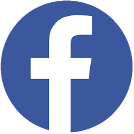Investopedia
Gold. It's shiny, metallic, and melts easily into bars, coins, or jewelry. It doesn't rust, corrode, or decay. Gold is...well, golden. But why is gold so valuable, both in our mind's eye and in reality as a global store of value and medium of exchange? Why is silver relegated to a distant second place, and what about poor old copper, which shares many of the same physical attributes as gold? Join us as we try to figure out the answers to these questions, and much more.
KEY TAKEAWAYS
In the articles that follow, we will take a look at gold's place in our economy and try to uncover just why it's valuable and what role gold can play today in investor's portfolios.
In fact, by some accounts, gold has never been more fashionable as an alternative investment, able to weather financial crises and hedge against the inflationary pressures of fiat currency.
We will discuss the risks and opportunities of owning gold as an investment, how to try and make quick profits day trading it in the commodities market, what influences its price, and how to go about owning gold in your brokerage account.
Before jumping on the gold bandwagon, let us first put a damper on the enthusiasm around gold and at the outset examine some reasons why investing in gold has some fundamental issues.
The main problem with gold is that, unlike other commodities such as oil or wheat, it does not get used up or consumed. Once gold is mined, it stays in the world. A barrel of oil, on the other hand, is turned into gas and other products that are expended in your car's gas tank or an airplane's jet engines. Grains are consumed in the food we and our animals eat. Gold, on the other hand, is turned into jewelry, used in art, stored in ingots locked away in vaults, and put to a variety of other uses. Regardless of gold's final destination, its chemical composition is such that the precious metal cannot be used up - it is permanent.
Because of this, the supply/demand argument that can be made for commodities like oil and grains, etc, doesn't hold so well for gold. In other words, the supply will only go up over time, even if demand for the metal dries up.
History Overcomes the Supply Problem
Like no other commodity, gold has held the fascination of human societies since the beginning of recorded time. Empires and kingdoms were built and destroyed over gold and mercantilism. As societies developed, gold was universally accepted as a satisfactory form of payment. In short, history has given gold a power surpassing that of any other commodity on the planet, and that power has never really disappeared. The U.S. monetary system was based on a gold standard until the 1970s.
Proponents of this standard argue that such a monetary system effectively controls the expansion of credit and enforces discipline on lending standards, since the amount of credit created is linked to a physical supply of gold. It's hard to argue with that line of thinking after nearly three decades of a credit explosion in the U.S. led to the financial meltdown in the fall of 2008.
From a fundamental perspective, gold is generally viewed as a favorable hedge against inflation. Gold functions as a good store of value against a declining currency.
The easiest way to gain exposure to gold is through the stock market, via which you can invest in actual gold bullion or the shares of gold-mining companies. Investing in gold bullion won't offer the leverage you would get from investing in gold-mining stocks. As the price of gold goes up, miners' higher profit margins can boost earnings exponentially. Suppose a mining company has a profit margin of $200 when the price of gold is $1000. If the price rises 10%, to $1100 an ounce, the operating margin of the gold miners goes up to $300 – a 50% increase.
Of course, there are other issues to consider with gold-mining stocks, namely political risk (since many operate in third-world countries) and the difficulty of maintaining gold production levels.
The most common way to invest in physical gold is through the SPDR's Gold Shares (GLD) exchange-traded fund (ETF), which simply holds gold. When investing in ETFs, pay attention to net asset value (NAV), as the purchase can at times exceed NAV by a wide margin, especially when the markets are optimistic.
A list of gold-mining companies includes Barrick Gold Corp. (ABX), Newmont Corp. (NEM), and AngloGold Ashanti Ltd. (AU), among others. Passive investors who want great exposure to the gold miners may consider the VanEck Vectors Gold Miners ETF (GDX), which includes investments in all the major miners.
Alternative Investment Considerations
While gold is a good bet on inflation, it's certainly not the only one. Commodities in general benefit from inflation, since they have pricing power. The key consideration when investing in commodity-based businesses is to go for the low-cost producer(s). More conservative investors would do well to consider inflation-protected securities like TIPS. The one thing you don't want is to be sitting idle, in cash, thinking you're doing well, while inflation is eroding the value of your dollar.
What's to Come
You can't ignore the effect of human psychology when it comes to investing in gold. The precious metal has always been a go-to investment during times of fear and uncertainty, which tend to go hand in hand with economic recessions and depressions.
In the articles that follow, we will examine how and why gold gets its fundamental value, how it's used as a money-thing, and which factors subsequently influence its price on the market - from miners to speculators to central banks. We will look at the fundamentals of trading gold, and what types of securities or instruments are commonly used to gain exposure to gold investments. We'll look at using gold both as a long-term component of a diversified portfolio and as a short-term day trading asset. We'll look at the benefits of gold, but also examine the risks and pitfalls, and see if it lives up to the "gold standard"
https://www.investopedia.com/articles/economics/09/why-gold-matters.asp







